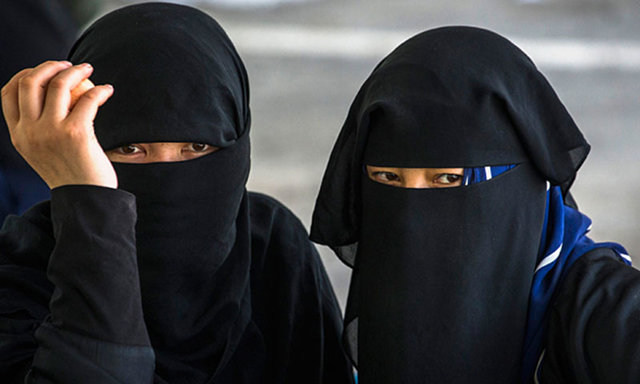Switzerland announced referendum over ban burqa issue

Voters in Switzerland will decide whether to ban Muslim face veils including the burqa after a campaign by far-right groups to outlaw the garment which they say undermine the "dignity of women". The public will get a chance to have its say in a referendum expected to be rolled out next year in the country where less than 5 per cent are Islamic in the largely Christian nation.
It was tabled after extremists gathered 100,000 signatures for the ballot, forcing officials to react under a rule in the country where voters decide the agenda in a system known as direct democracy. The executive Federal Council will set a date for the referendum, which is not expected before next year. If the ban goes through, it would put Switzerland alongside France, Austria and other European countries in prohibiting face-covering garments.
The measure was proposed by a group including MPs from the nationalist Swiss People's Party that was also behind a ban on building minarets in Switzerland.
The issue has been argued over in Swiss society for many years, with the senate rejecting a draft bill on the topic in March after the lower house approved it. It was also rejected by the people of Glarus canton during an open-air assembly this May.
But the canton of Ticino, in the south of the country, overwhelmingly backed a regional ban of the burka and other full-face coverings in public in 2013. There have been only around half a dozen fines – which can be as high as 10,000 francs – in the canton, including one campaigner who deliberately broke the law.
Only around 350,000 of Switzerland’s 8.3 million inhabitants are Muslim, but issues around religion and integration have become a key focus in recent months. France and Belgium already enforce a bans on full-face veils, while Germany and the Netherlands are considering similar laws. Regions of Italy, Spain and Russia also regulate religious attire.
A recent survey by YouGov found the British public supported a universal ban on Islamic veils by an overwhelming margin of more than two-to-one.

